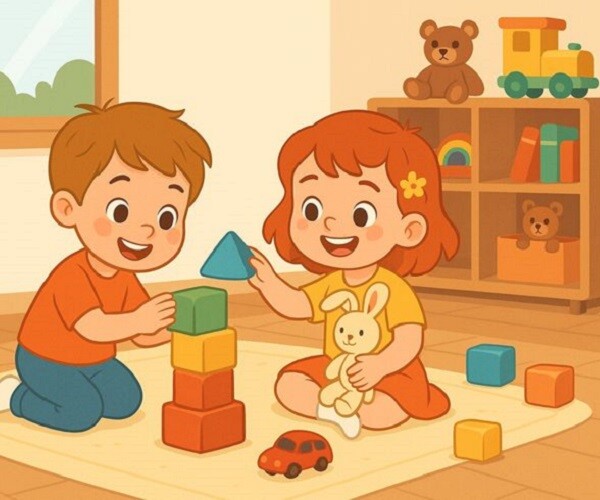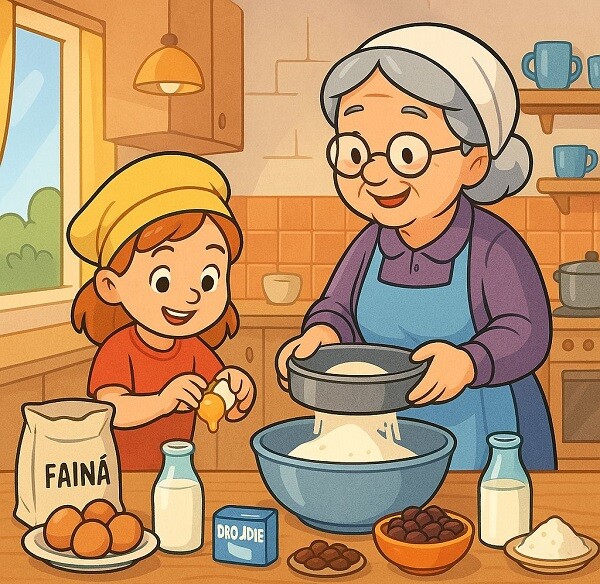On the surface, this child appears well-behaved and understanding as an adult, but in reality, their physical and mental defense systems have long been broken.
Consider this from another perspective: A child who is frequently allowed to express themselves, experiment, and make mistakes is more likely to grow up healthy and robust. Psychological freedom and physical exploration in childhood not only shape one’s character but also profoundly impact their lifelong health.

A 10-year-old girl often suffers from stomachaches, but no organic disease can be found. Her mother shares that her daughter is usually well-behaved, never snacks, and doesn’t run around or talk back.
In reality, these seemingly perfect children often live in a high-pressure environment. Psychological testing reveals that the girl has been suppressing her emotions, leading to long-term stress and anxiety, resulting in neurogenic bowel dysfunction, a common condition known as irritable bowel syndrome, where her childhood psychological state is a contributing factor.
From a medical perspective, truly caring for a child’s health involves more than ensuring they eat and sleep well. It also means allowing them age-appropriate freedom and permitting behaviors that may seem “disobedient.” This form of “permission” is a wise way of showing love.

Allow your child to get dirty
Many parents value cleanliness and often scold their children for getting their clothes dirty. However, medical research indicates that moderate exposure to natural bacteria during childhood helps train the immune system.
In other words, an overly sterile environment increases the risk of allergies, asthma, and autoimmune diseases later in life.
An epidemiological survey published in the Chinese Journal of Pediatrics revealed that children in cities who grow up in “sterile” environments have a 2.5 times higher rate of asthma than children in rural areas.
The reason lies in their underdeveloped immune systems, which haven’t learned to cope with environmental microorganisms.

Allow your child to get dirty.

Allow your child to express their emotions and engage in moderate dissent
Many parents interrupt their children when they express opinions, believing it to be disrespectful. However, in clinical psychology, it is common to encounter patients who were never allowed to say “no” as children.
If emotions are suppressed for extended periods, children may develop physical symptoms such as migraines, insomnia, and teeth grinding during sleep.
Therefore, the ability to express emotions serves as a firewall to protect the child’s future mental health.

Let your child play and run under the sun
Some parents keep their children indoors to prevent sunburn or falls. However, sunlight not only promotes vitamin D synthesis but also regulates mood, increases bone density, and boosts the immune system.
The World Health Organization recommends that children engage in at least one hour of outdoor activity daily. Lack of sunlight increases the risk of depression and concentration issues.
Abnormal bone density in elementary school students is a common finding in orthopedic clinics, often associated with a lack of exercise. Children’s bones are like cement; they need the “fire” of sunlight to strengthen them.

Let your child play and run under the sun.

Allow your child to make mistakes and refrain from immediate correction
A third-grade student suffered from intense stomachaches, preventing them from attending school. Upon further investigation, it was discovered that since childhood, they were criticized and even made to write “self-criticism essays” whenever they answered a question incorrectly.
In medical terms, this phenomenon is known as “stress-induced digestive response,” a typical “psychosomatic illness.” Excessive and inappropriate punishment can cause children to develop a physiological fear of failure.
In reality, mistakes are an inherent part of the learning process, much like a seed must crack before it can sprout.

Allow your child to make mistakes and learn from them.

Allow your child to choose their hobbies
Many parents enroll their children in numerous hobby classes, disregarding their true interests. However, research indicates that a strong sense of self-reliance at a young age correlates with lower rates of anxiety, depression, and chronic fatigue syndrome in adulthood.
A 14-year-old boy with consistently high grades suffered from chronic insomnia and headaches. When asked what he enjoyed most, he replied, “Honestly, I’ve always wanted to learn drawing.” However, his parents were completely opposed to this idea.
Consequently, prolonged psychological repression led to “functional headaches” that didn’t respond well to medication.
Therefore, parents should recognize that genuine interest is a form of self-healing, and children should be allowed to freely choose their hobby classes.

Allow your child to choose their hobbies.

Allow your child to daydream
Many parents fill their children’s time with activities they may not enjoy, believing that idleness is wasteful. However, from a neuroscience perspective, when the brain is idle, it activates the “default mode network,” a key mode for creativity and mental integration.
Moderate daydreaming is a form of “self-cleaning” for the brain. Therefore, experts recommend that parents set aside 30 minutes daily for their children to “freely relax.” Over time, their focus and academic performance will improve.

Allow your child to solve their own problems
Nowadays, some parents tend to intervene and “pave the way” for their children. However, many young adults in their twenties lose control when faced with pressure, sometimes even developing anxiety or panic disorders.
They are not incompetent; they simply haven’t been “forged” from a young age. In psychology, there’s a term called “learned helplessness,” referring to the habit of letting others solve one’s problems, resulting in a lack of confidence when facing challenges as adults.

Allow your child to solve their own problems.

Allow your child to indulge in snacks
This may seem contradictory, but indulging a little can have benefits. Many children are subjected to strict dietary restrictions, only to engage in excessive eating during adolescence, harming their health.
Controlling eating habits requires flexibility, not relying on restraint but on guidance. For example, allocate a “cheat day” during the weekend to indulge in treats. This way, children can satisfy their cravings while learning self-discipline. Over time, this approach will be more beneficial in forming healthy eating habits.

Children need a healthy environment to thrive.
From a medical perspective, “permission” during childhood isn’t about spoiling your child but about creating space for their physical and mental development.
Parents should focus less on grades, rules, and achievements and instead adopt a positive outlook to help their children grow into healthy adults. If you want your child to thrive, don’t force them to conform to an obedient mold; let them live.



































